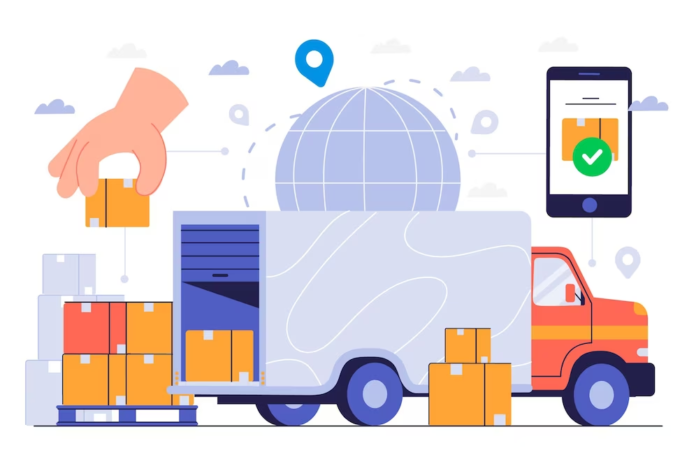The transport sector is crucial in shaping the global economy, impacting the smooth functioning of supply chains and business profitability. Recently, integrating Transport Management Software (TMS) has become vital for businesses aiming to refine their transportation strategies. Yet, the question looms – what tangible benefits do businesses reap from this investment? Let’s delve into it.
TMS: A strategic asset in modern logistics
To use transport management software is more than just an operational decision; it’s an investment in streamlining operations and slashing costs. TMS offers a one-stop solution for handling various transportation logistics facets like route planning, carrier choice, freight auditing, payment processing, and analytics. This automation cuts down manual labor, minimizes errors, and enhances both cost-effectiveness and service quality in transportation.
Breaking down TMS ROI: costs and efficiency
Assessing the ROI of TMS involves looking at both direct and indirect financial gains. The most apparent are direct cost savings, coming from more efficient carrier choices, reduced freight costs, and smarter route planning that conserves fuel and boosts delivery efficiency.
Indirect benefits are equally crucial, though less visible. These encompass improved customer satisfaction from reliable, faster deliveries, the ability to scale logistics, and reduced administrative work.
- Direct savings: TMS sharply cuts transportation costs by fine-tuning carrier selection and freight rates. It empowers businesses to weigh various shipping options, ensuring cost-effective decisions. Moreover, TMS helps in consolidating shipments, yielding lower bulk rates and reducing the number of necessary trips, directly benefiting the bottom line through tangible cost reductions.
- Boosting operational efficiency: Through automation of tasks like scheduling, route optimization, and load management, TMS elevates operational efficiency. It streamlines resource usage, lessening the time and labor needed for manual coordination. Efficient shipment consolidation, optimal route planning for fuel and time economy, and precise delivery schedules enhance logistics productivity, resulting in quicker and more dependable service.
- Enhanced asset use: TMS optimizes transportation schedules and routes, leading to better asset utilization. This maximizes the existing fleet’s use, curtailing the need for extra vehicles or equipment. Improved asset utilization not only reduces capital expenditures but also minimizes maintenance and operational costs linked to underused assets.
- Lower inventory costs: By refining supply chain processes, TMS aids in better inventory management, diminishing the necessity for large safety stocks. More accurate and timely deliveries enable leaner inventory, which cuts down storage costs. Reduced inventory levels also mean lower expenses in insurance, taxes, and depreciation, adding to the cost savings.
- Improved carrier performance analysis: TMS allows businesses to monitor and assess carrier performance, including delivery timeliness, shipment accuracy, and goods handling. Working with more reliable carriers reduces costs related to delays or damaged shipments. This performance data can also be leveraged to negotiate more favorable rates and service terms with carriers, optimizing transportation expenses further.
Beyond cost: Strategic advantages of TMS
- Enhanced visibility and control
TMS gifts users with a bird’s-eye view of the entire transport process, from the initial order to the final delivery. This comprehensive perspective enables real-time tracking and hands-on management of transport operations.
Swiftly pinpointing and tackling problems like delays or route changes, operations become more streamlined. Moreover, it equips businesses with the power to make decisions based on data, like tweaking strategies in light of transport trends or market shifts, boosting overall operational agility.
- Streamlining compliance and risk handling
TMS eases the burden of meeting regulatory standards and sticking to industry norms, a crucial part of transportation. By handling documentation digitally and keeping accurate records, TMS lessens the danger of fines for non-compliance.
It also assists in navigating risks linked to transportation, such as managing hazardous materials or understanding complex international trade laws. As a result, companies dodge expensive legal troubles and preserve a robust market reputation.
- Harnessing data for smart decisions
The market for transportation management systems will expand significantly, going from a size of $13.5 billion in 2023 to a whopping $33.3 billion by 2028. Among TMS’s standout strategic perks is its knack for gathering and dissecting transport data.
This feature lets businesses gain insights into shipping trends, expenses, and carrier efficiency. With this knowledge, companies can craft savvy logistics strategies, refine shipping routes, haggle for better carrier prices, and pinpoint supply chain improvements.
- Boosting customer service
TMS directly betters customer service by guaranteeing prompt, accurate deliveries. Its route and schedule optimization ensures customers get their orders on time, raising satisfaction and trust. Plus, TMS’s real-time shipment tracking offers businesses the ability to keep customers updated, enhancing transparency and communication.
- Scaling and adapting with ease
As companies grow, their transport demands get more intricate. TMS stands out for its scalability and adaptability, letting businesses tweak their logistics to manage more volume or break into new markets. This flexibility is key for companies looking to expand without hefty new investments in logistics infrastructure.
Conclusion
As the logistics and transportation field keeps evolving, TMS’s role in aiding businesses to adapt, stay ahead in the game, and sustain growth becomes ever more vital. Adopting TMS goes beyond a mere tactical move; it’s a strategic investment in the future of business logistics.

